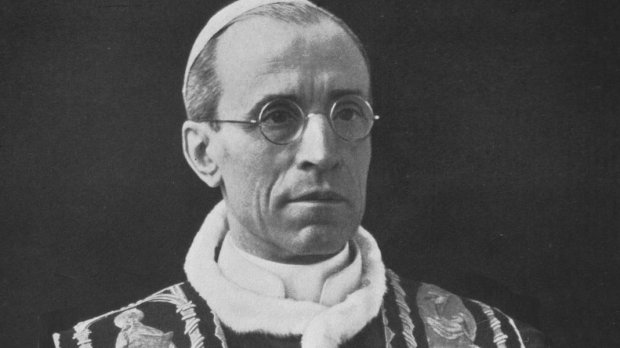Every day, Aleteia offers a selection of articles written by the international press about the Church and the major issues that concern Catholics around the world. The opinions and views expressed in these articles are not those of the editors.
Wednesday 30 November 2022
~
1. Russian reaction to new interview illustrates logic for papal ‘silence’
2. Questions asked at the Second Vatican Council on the celibacy of priests
3. The Vatican objects, but does China care?
4. The Vatican has lost control of the German Synodal Way
5. Patriarch Bartholomew to make historic visit to Malta
1Russian reaction to new interview illustrates logic for papal ‘silence’
In his interview with the Jesuit magazine America, Pope Francis defended himself against accusations of excessive silence regarding Russia and the war in Ukraine. Some observers believe that, just as Pope Pius XII is sometimes criticized today for his “silence” during the Holocaust, Pope Francis may one day be subjected to a negative historical judgment for his discretion in mentioning Moscow. However, Pope Francis’ comments on the abuses committed by the Russian troops in Ukraine have drawn a lot of anger from Moscow, shedding another light on the meaning of the Pontiff’s rather nuanced and cautious words up until now. “As a rule, the most cruel, perhaps, are those who are from Russia, but do not adhere to the Russian tradition, such as Chechens, Buryats and so on,” the Pope said in the interview, referring to two ethnic minorities who often provide front-line troops in Russia’s conflicts. The Chechens, from southwest Russia, are predominantly Muslim. The Buryats, on the other hand, are a Mongolian ethnic group from eastern Siberia, who traditionally follow Buddhist and shamanic beliefs. “Quite possibly, Francis intended the comment as an indirect overture to Moscow, a way of saying that the Russians themselves may not be quite as bloodthirsty as depicted,” explains Crux’s John Allen, while noting that the result was exactly the opposite. The spokesperson for the Russian Foreign Ministry, Maria Zakharova, denounced the Pope’s words as a “perversion of the truth,” and accused the Bishop of Rome of wanting to divide the Russian forces. “We are one family with Buryats, Chechens and other representatives of our multinational and multi-confessional country,” she wrote on Twitter. Several political and religious leaders from these regions also condemned the Pope’s remarks. The pontifical organization Aid to the Church in Need also reported the arrest of two Catholic priests in the Russian-occupied port city of Berdiansk in southeastern Ukraine. An Italian newspaper has already suggested that this is a form of “blackmail to force Francis into silence.” Although no link has been established, this situation could still cause the Pope to reconsider the rapprochement with Ukraine that he has expressed in recent days, Allen speculates.
Crux, English
2Questions asked at the Second Vatican Council on the celibacy of priests
Professor Gilberto Borghi questions the Second Vatican Council’s decree on the priesthood, Presbyterorum Ordinis, which deals with the obligation of priestly celibacy in the Latin Church. In particular, he points out that the text admits that the Church’s decision does not derive from the way Christ constituted the sacrament of Holy Orders, but from the Church’s own choice, “which in itself, has no divine compulsoriness and therefore can also be revoked.” To justify itself, the decree explains that with celibacy the mission of the priest reaches a potential perfection. However, Borghi points out that, if this is the case, “it is difficult to get away from the idea that married priests [of the Eastern or the Anglican Church] are second-class with respect to their ability to fully carry out their ministry.” The professor also believes that if celibacy is to be freely embraced by the priest, it would make more sense for it to be made optional, rather than obligatory, in order to have a real choice outside of “an external rule.” Finally, the same text of the Council affirms “the superiority of virginity consecrated to Christ.” However, Borghi notes that St. John Paul II went against this affirmation in an audience on April 14, 1982, where he declared that “in Christ’s words about continence for the sake of the Kingdom of heaven, there is no mention about the inferiority of marriage.” The words of the New Testament “provide no reason to support either the inferiority of marriage or the ‘superiority’ of virginity or celibacy,” the Polish Pope said.
Vino nuovo, Italian
3. The Vatican objects, but does China care?
Was the appointment of a bishop in China a calculated act of provocation by Beijing, or evidence of its casual indifference to the Vatican?
The Pillar, English
4. The Vatican has lost control of the German Synodal Way
In the tug-of-war between the Catholic Church in Germany and the Vatican, French daily Le Figaro sees a crisis symptomatic with the evolutions underway in the Church, and whose main stakes are those of power and of making Catholic theology evolve.
Le Figaro, French
5. Patriarch Bartholomew to make historic visit to Malta
The Ecumenical Patriarch of Constantinople will visit Malta from December 4 to 7 at the invitation of Archbishop Charles Scicluna. During this first ever visit by Patriarch of the Eastern Orthodox Church, he will also meet with the President of the Republic and the country’s bishops.
Newsbook, English

